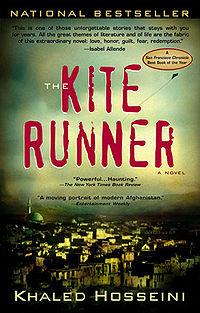The following post is a great summary of my interview with Russell Bishop. Here he further explains the difference between important and urgent, and how not to burnout. To get to his original post, click here.
If you are lucky enough to still have a job, and that job is working in an office, then you may know a little bit about overwhelm and burnout.
Overwhelm comes with having more to do than can be done. Burnout shows up when you do the same old thing over and over again without ever feeling like it makes much difference.
In this post, we want to examine a common source of overwhelm and burnout, offering a glimpse into what you can do about it.
Do You Work With Fire Fighters Or Corporate Arsonists?
In my consulting experience, I have found that organizations in overwhelm also tend to be organizations in a constant state of fire drills. Management is forever screaming “Stop what you are doing — this is urgent!” Someone discovered a fire or crisis that must be attended to right now. So, “hurry up! Don’t just sit there, do something.”
The problem with fires and crises is that they rarely seem to show up when convenient. And you never find a fire or crisis penciled in on your calendar.
Do you find yourself constantly fighting fires and crises at work? Do you hear others complaining about all the fires they have to put out? Sound familiar? Of course it does. Studies have shown that up to 80% of a person’s day can be filled with unplanned work — fires, crises and other “emergencies.”
Can you think of an organization that NEVER complains about fires and crises?
Sooner or later you will likely settle on the Fire Department, Of course, they never complain about fires and crises now do they? Why not? Well, that’s their job, isn’t it?
And, yet, when was the last time you saw the fire engine broken down on the side of the road because they just didn’t have time to get it tuned? Don’t fire fighters have to plan, perform preventive maintenance, create budgets, shop for food, investigate new flammables at local businesses, train new staff, learn new techniques, and a whole host of other non-firefighting activities?
Of course they do!
According to the National Fire Protection Association (NFPA) of Quincy, MA there were to 2.12 million false alarms in 2007, up 230% over the previous 15 years! The City of Los Angeles averages roughly 100 false alarms per day.
The fire brigade doesn’t have the luxury of looking at the ringing phone and saying, “if it’s important, they’ll call back.” They have to drop what they’re doing and respond right now. And much of the time, those calls are false.
We already know that real fires and emergencies just don’t get scheduled on your calendar. They show up when they show up. The corporate fire fighting challenge lies in two very different categories according to source of the emergency, yet both share the same solution: planning and preparation.
A big question has to do with the source of the fire: did something external take place that wound up creating the emergency? Or, do we have a corporate arsonist running around loose, starting fires for others to fight. Even worse, might you be your own arsonist?
Some fires and crises are genuine. Something unplanned occurred and immediate response is required. Just because something is unplanned doesn’t mean you can’t anticipate and plan for it. Huh?
If part of your job is to respond to fires and crises, then doesn’t it make sense to organize your work so that you can respond urgently without everything else getting discombobulated? Every one of us has a job to do, and part of that job is to anticipate disruptions, and organize accordingly. That’s what fire department planning is all about, right down to the fire pole and turnout clothing.
Are You Your Own Arsonist?
We have all heard the difference between Urgent and Important, and yet we allow the non-important to become urgent, thus creating fires to be put out. So, in a way, we become the arsonist who creates the fires we have to put out.
Have you ever set yourself on fire? How about putting off renewing your driver’s license? I mean, how important is a driver’s license really? Not that big on a day in and day out basis. However, it just might look a bit more important at the airport security line or if Officer Friendly wants to have a look.
How can you organize your work so that you not only get things done, but also find yourself prepared for the inevitable emergency? How do you distinguish between the urgent and the important, making certain you have room for both?
In the next couple of posts, we will show you a system for organizing what’s on your plate in a way that will not only help you get more work done more efficiently, but also help you get the right work done in right timing.
The arson rate will drop and when real fires show up, you will have your own equivalent of turnout gear and the fire pole to help you respond.
To read more Beyond Blue, go to http://blog.beliefnet.com/beyondblue, and to get to Group Beyond Blue, a support group at Beliefnet Community, click here.
To subscribe to “Beyond Blue” click here.
![]()

